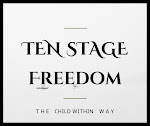True guilt is guilt at the obligation one owes to oneself to be oneself. False guilt is guilt felt at not being what other people feel one ought to be or assume that one is. Moderate feelings of guilt are beneficial because they encourage the individual to do the right thing
The Scottish psychologist R.D. Laing once said: True guilt is guilt at the obligation one owes to oneself to be oneself. False guilt is guilt felt at not being what other people feel one ought to be or assume that one is. Moderate feelings of guilt are beneficial because they encourage the individual to do the right thing. If nobody felt guilty about anything it would likely lead to a fearful world and it could even threaten the survival of the human species. There is also a more negative form of guilt which is excessive and harmful. This refers to a situation where the individual carries a sense of guilt around with them most of the time. The reasons for why the individual may become a victim of excessive guilt include: They have a poor self image. It can be a sign of mental health difficulties. Some people fall into negative thinking and this tends to include guilt. The individual has been a victim of physical or sexual abuse. Unhealthy relationships can leave people with feelings
